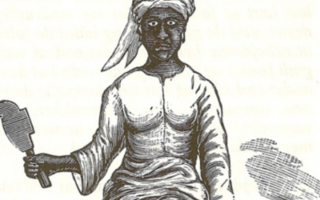Jamaica
Samuel Sharpe, or Sharp (1801 – 23 May 1832), also known as Sam Sharpe, was an enslaved Jamaican who was the leader of the widespread 1831–32 Baptist War slave rebellion (also known as the Christmas Rebellion) in Jamaica.
Sharpe’s originally peaceful protest turned into Jamaica’s largest slave rebellion. The uprising lasted for 10 days and spread throughout the entire island, mobilizing as many as 60,000 of Jamaica’s enslaved population. The colonial government used the armed Jamaican military forces and warriors from the towns of the Jamaican Maroons to put down the rebellion, suppressing it within two weeks. Some 14 whites were killed by armed slave battalions, but more than 200 slaves were killed by troops. Afterwards, more reprisals followed. The government tried, convicted, and hanged many of the ringleaders, including Sharpe, in 1832. A total of 310 to 340 were executed through the judicial process, including many for purely property offenses such as theft of livestock.
In the months leading up to his execution, while in jail, Sharpe had several meetings with Rev. Henry Bleby, a missionary, who reported that Sharpe told him: “I would rather die upon yonder gallows than live my life in slavery.” The rebellion and government response provoked two detailed Parliamentary Inquiries. The Jamaican government’s severe reprisals in the aftermath of the rebellion are believed to have contributed to passage by Parliament of the 1833 Slavery Abolition Act and final abolition of slavery across the British Empire in 1838.
